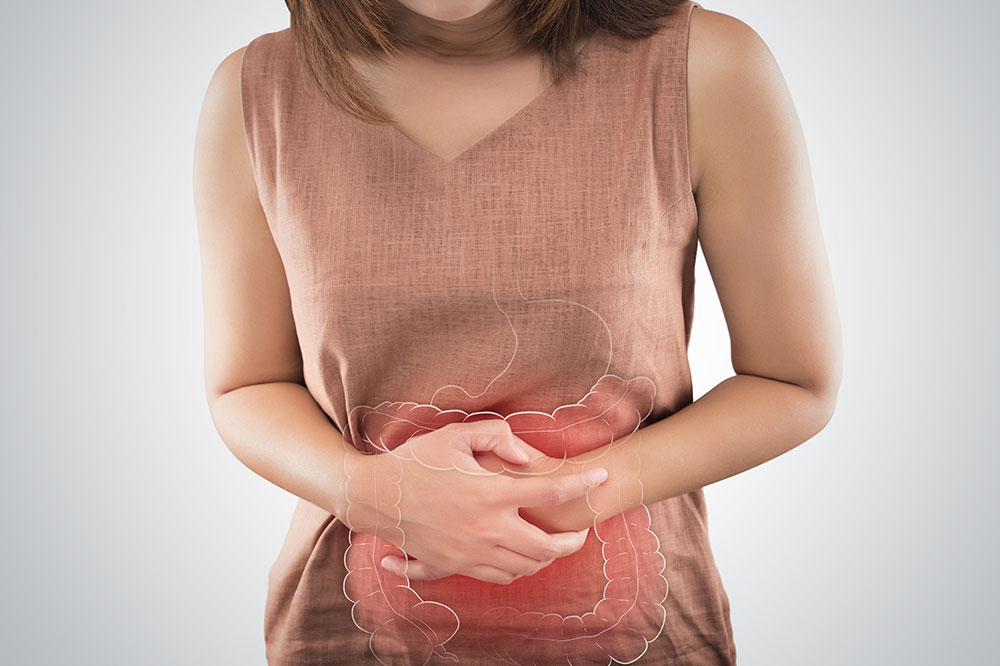
Symptoms and Causes of Ulcerative Colitis
Inflammatory bowel disease or IBD is a group of illnesses that affect the digestive tract. Ulcerative colitis (UC) is one type of IBD that targets the colon, rectum, or both. It is characterized by irritation, inflammation, and ulcers in the lining of the colon. The disease does not have a definitive cure, but treatments are known to reduce flare-ups and improve quality of life.
Let’s have a look at the symptoms and causes of ulcerative colitis.
Causes of ulcerative colitis
The malfunctioning of the immune system causes ulcerative colitis. Inflammation is an essential part of fighting infections and healing. However, when the immune system is, for some reason, impaired, the inflammation proves to be problematic. The swelling and sensitivity can develop into ulcers and open sores in the colon. Ulcerative colitis is an auto-immune condition, as the white blood cells attack the intestinal lining that provokes the inflammation in the first place. The exact reason is unknown, but generally, there are three common triggers.
1. Genes
Ulcerative colitis is known to run in families. The exact genes are under study, but research indicates the presence of abnormal genes in people suffering from this inflammatory disorder.
2. Infections
Since the immune system is implicated, bacterial and viral infections that set off immune reactions must undoubtedly be a cause of ulcerative colitis. In some cases, an infection might turn on the immune system, but the turning off is delayed for an unknown reason. With nothing else to attack, the white blood cells might assault the intestinal lining, causing the inflammation that sets of ulcerative colitis.
3. Medication and food
Certain medications like nonsteroidal anti-inflammatory drugs, birth control pills, and certain antibiotics are linked to this type of inflammatory bowel disease. High-fat diets also seem to be correlated to the prevalence of ulcerative colitis.
Symptoms of ulcerative colitis
Ulcerative colitis can manifest in people in diverse ways. The severity is associated with the location and the inflammation. The rectum is affected first, and then it spreads upwards into the large intestine or colon. The inflammation causes frequent emptying of the bowel, and ulcers could cause bleeding, discharge of mucus and pus. Symptoms generally appear in cycles with alternating periods of remission and flare-ups.
1. Initial symptoms
Since the gastrointestinal tract is affected, many symptoms are related to digestion. Abdominal pain is the easiest to notice. Grumbling might be louder than usual. Abnormal stools are typical indicators of an IBD. Hence you must never ignore urgent bowel movements. Rectal pain could also accompany abdominal discomfort. The immune component of the disease makes fevers common.
2. Progressive symptoms
Blood in the stools, mucus, and pus are common symptoms as the disease progresses. The loss of red blood cells can result in anemia. Cramping might get more severe, and frequent bowel movements might cause an excessive loss of fluid and nutrients. An overall loss of body weight, fatigue, and malnutrition are typical results of this. In later stages, other organs could also be affected. Skin rashes, mouth sores, a burning sensation in the eyes, and liver and joint problems could also crop up.
Ulcerative colitis is a complex disease to live with, but it is essential to understand its symptoms and causes and work with your health care provider to stretch the remission periods.


